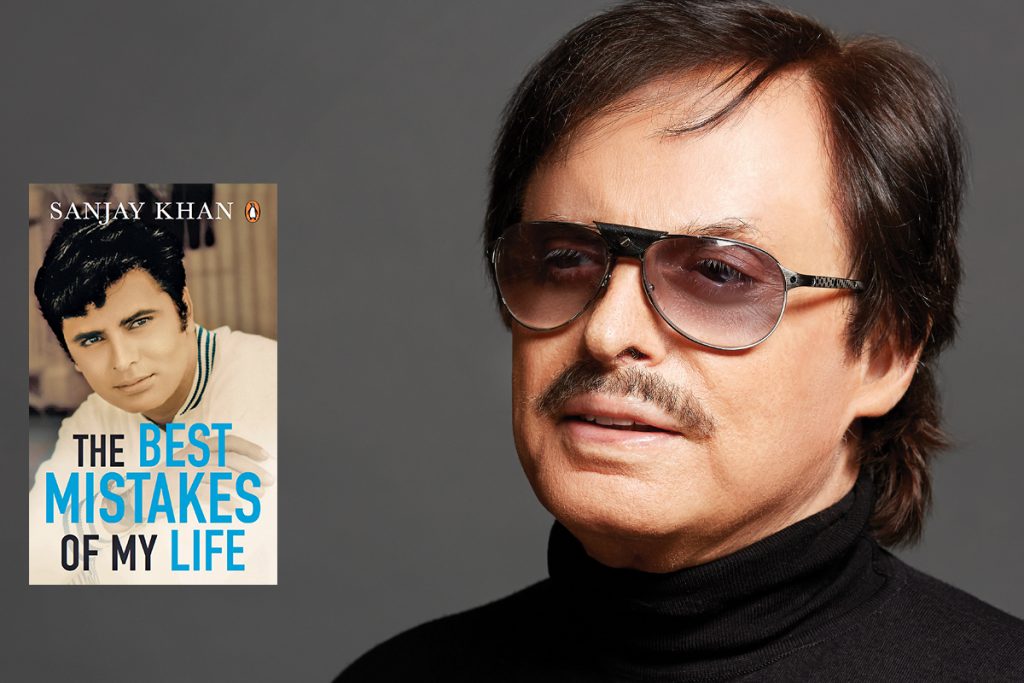Actor-director Sanjay Khan, better known as the Golden Boy of Bollywood, had given some of the biggest hits of the 60s, 70s and 80s – Ek Phool Do Mali, Dosti, Dhund, Mela, Chandi Sona, Abdullah, to name a few. His foray into the Indian television was equally successful. Khan was at the peak of his career when a fire tragedy on the sets of ‘The Sword of Tipu Sultan’ left him battling
In a candid chat with the noted journalist and columnist, Vani, who is also the author of ‘The Recession Groom’, Khan answers questions on his personal and professional life. Here are the excerpts from the interview…
Vani: You started the book with one of the most traumatic episodes of your life, the fire on the sets of The Sword of Tipu Sultan. How did this one incident change your perception about life and about yourself? Have you completely “accepted” that incident and made peace with it or do you still find it difficult to talk about it? What is your self-talk like?
Sanjay Khan: I do not find it difficult to talk about it anymore. The impact of this accident was so sudden; I didn’t believe it was happening to me. I was surprised by the reservoir of courage and tenacity I had within me to bear this excruciating journey to overcome this challenge. I realised the dynamo which generated my will to live, was my family. Today, this incident has added huge values to my life.
Vani: Many of your contemporaries were reluctant to make the switch from movies to TV. What prompted you to go the TV way, and then, to keep following it for years?
Sanjay Khan: Bhagwan S Gidwani’s ‘The Sword of Tipu Sultan’ was a classic that needed to be told in detail. Television was the best option it would be carried to wider and larger audiences across the world. ‘The Sword of Tipu Sultan’ is still remembered as a classic. ‘Jai Hanuman’, ‘The Great Maratha’ topped the TRP charts all over and won me worldwide acclaim and carried the message of national integration, communal harmony and the spirit of our ancient culture, besides its huge commercial success. I am now planning a line-up of major motion pictures for the big screen.

Vani: You have been an actor, writer, director, producer, and for many years now, you have also been into the business of real estate. What role do you identify with most?
Sanjay Khan: I am blessed with a creative disposition which keeps me always on the move. Building the 5 Star Deluxe- The Golden Palms Hotel & Spa in Bangalore, was a prelude to the most ambitious venture of my life- The Seven Cities Theme Park and Entertainment Destination, celebrating 5000 years of Indian History Culture & Civilisation to be built in Agra.
Vani: In the book, you write about your personal life: “…We have never discussed the unfortunate mess I was in – it was too raw. Another woman might have revolted and sought
Sanjay Khan: Fortunate is the man who is blessed with a wife like Zarine.
Do you resent the fact that your personal life was played out too openly by the media (with reference to the episode with Zeenat Aman)?
Sanjay Khan: My only regret with the then media is that they never asked my side of the story. The arbitrary approach was unfair, unethical and unjustifiable. It was a one-sided manufactured story devoid of facts, which still appears from time to time to grab a few eyeballs.
Each time you are questioned/judged for your mistakes, do you feel like you’re back to those days, reliving that difficult period of your (personal) life?
Sanjay Khan: The only time I felt pain and the joys of my life, written in my autobiography was only when I delved deep back into those zones to capture the aroma and share it with the world in my book. I did not feel at any point I was being judged.

What was your relationship with media like at that time? Did you read newspapers/magazines to find out what was being written about you? Did you feel the need to go out and present your side of the story? Lastly, did you ever try and reach out to this other person in the story (Zeenat Aman) and make peace with her?
Sanjay Khan: I was carrying out the responsibilities of shooting three shifts a day which did not give me the luxury of time to look or worry about what was said in the press. I’ve always believed in the principal of doing no wrong to anyone.
How did you redeem yourself in your relationship (with Zarine) ?
Sanjay Khan: Love
When you look back, do you believe you could have done things differently?
Sanjay Khan: I believe in destiny. When I look up to the universe and the vastness of infinity and the power of the almighty God I accept everything I have received so far.
What were your biggest lessons during those four years of self-exile (after the episode of Zeenat Aman)?
Sanjay Khan: There were no lessons to be learnt. On the contrary, the period of exile strengthened my resolve to take on new challenges.

